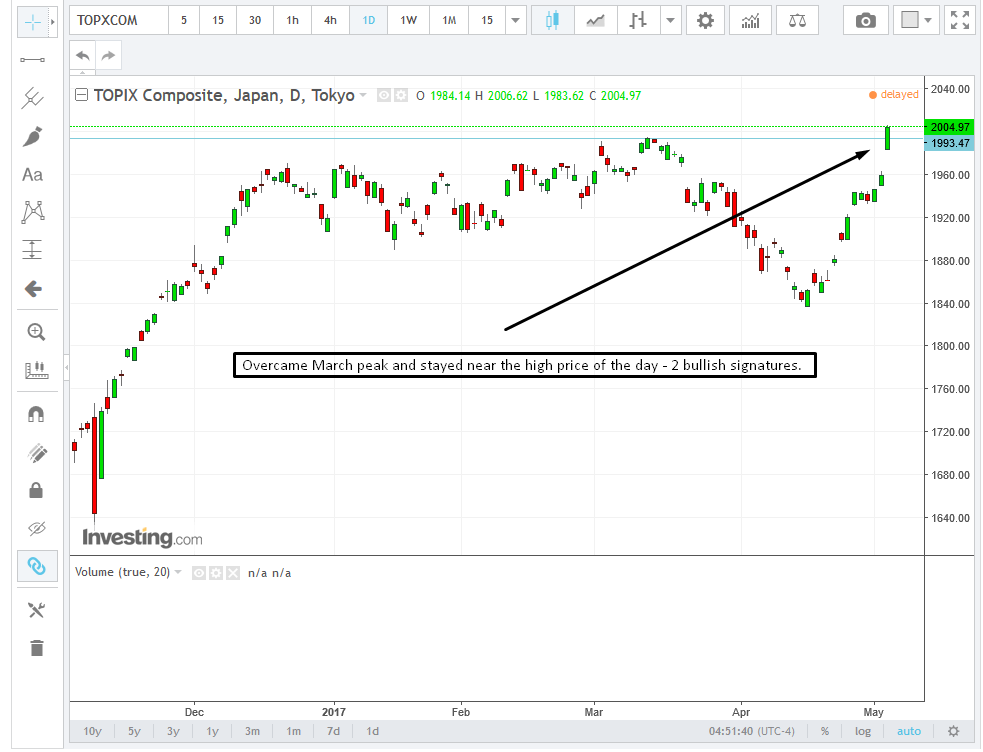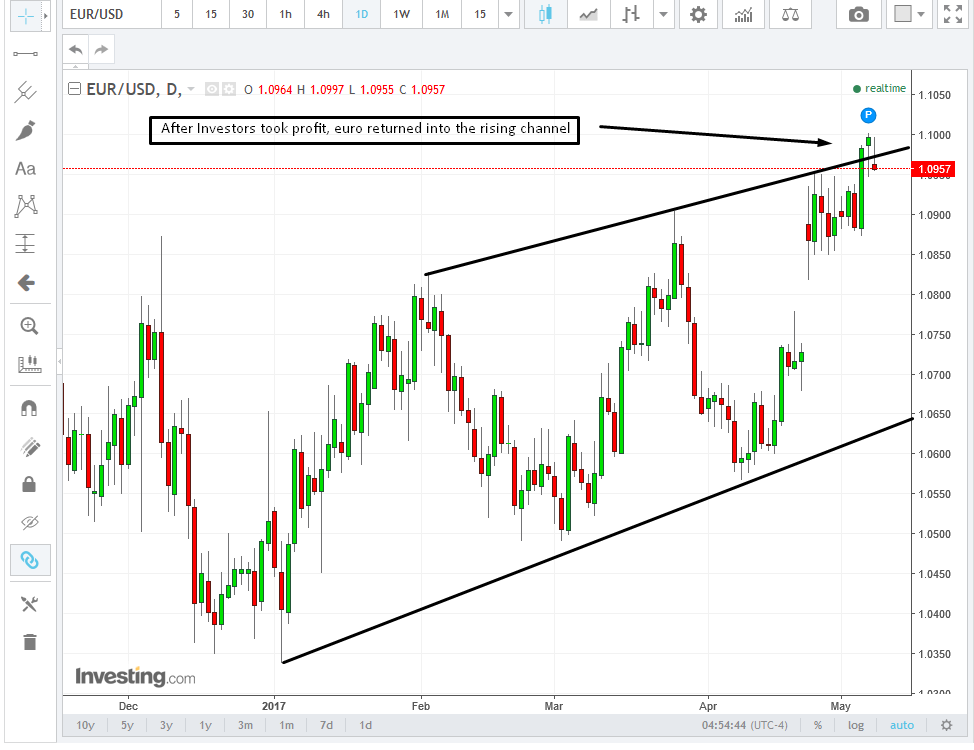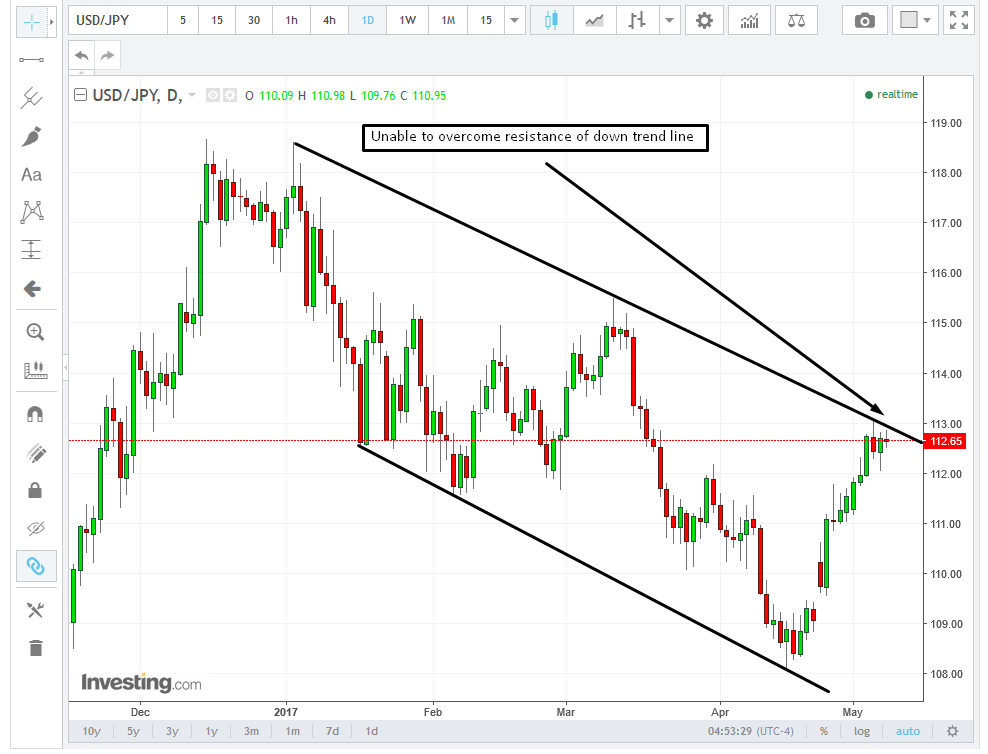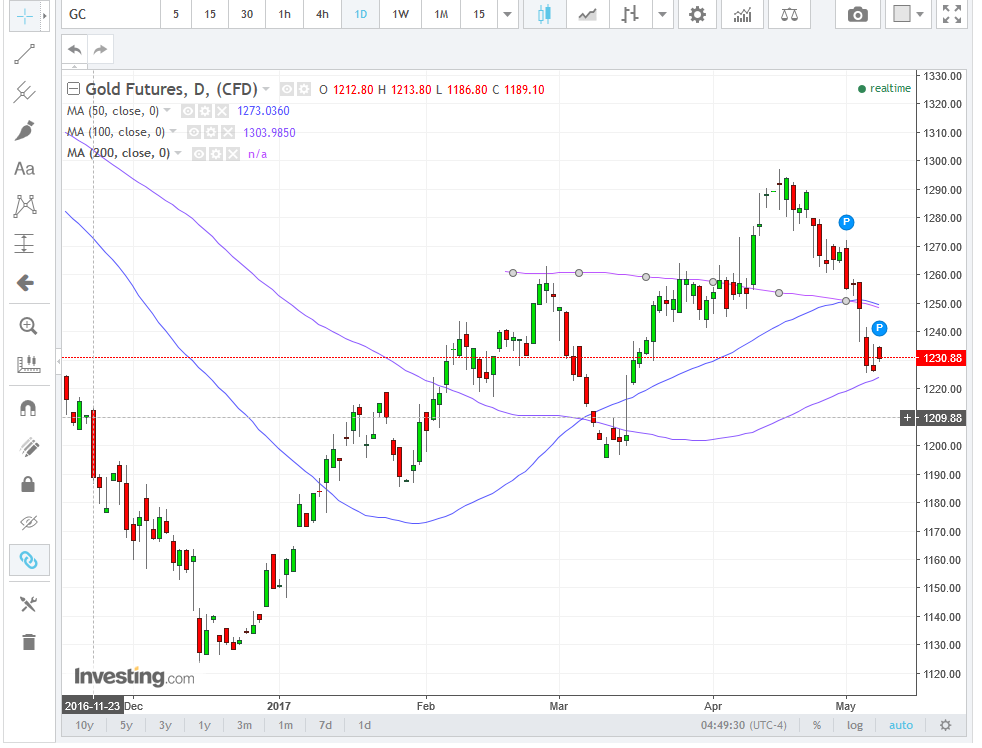by Pinchas Cohen
Viva la France! Macron and Stocks Win the French Elections
- Euro declines, bonds muted
- Equities rally across-the-board, outside of China
Investors expressed their relief over avoiding another financial shock and the uncertainty it brings by buying shares, while currencies and bonds were relegated to the position of designated drivers, there to accompany guests home after the party.
Equities are most definitely in vogue in the afterglow of Emmanuel Macron's resounding victory, as investors refocus on the eurozone’s increasing growth, attractive valuations relative to US shares and a European central bank that's willing to cater to eurozone risk. As well, last week’s robust American jobs report and Fed comments helped renew optimism in the US economy after a data soft-patch.
Japanese and European futures rallied across-the-board. The German DAX has been outdoing France's CAC 40; a devalued euro has helped boost the German economy which depends heavily on exports. Ironically, the Spanish IBEX 35 Index is today's biggest gainer as of this writing, suggesting peripheral markets have the most to gain on yesterday’s pro-EU Macron win.

Japan’s TOPIX Index returned reinvigorated from its three-day holiday last week and climbed to its highest level since December 2015, after US stocks made yet another record close on Friday. It gained 2.3%, the largest upleg since January 4, overcoming resistance from its March peak.
Chinese stocks, however, have not been so fortunate, extending losses since last month, after $400 billion in value had already been erased, as equities and bonds suffer from the government’s crack-down on financial leverage as it focuses on the country’s shadow banking system.

A market adage says: “buy on the rumor, sell on the news.” Euro traders bought on the “rumor,” or more correctly expectation, of a Macron victory, and sold on the news.
Another reason for investors to take profits now is the assumption of a fragmented French parliament, with the implication that the 577 seats of the lower house will be split by five main political movements. The euro’s recent rise was not just about market optimism that a Frexit could be avoided. More savvy (and wealthier) investors were also counting on Macron’s ambitious economic overhaul, viewed as something good for France.
Consider the recent Congressional impasses in the US which has only two main political parties and you begin to understand the herculean task ahead for Macron. He'll need to work with and bring to the bargaining table five potentially diverging political interest groups.
Despite the diminished European risk, oil extended its rebound, but gold is climbing.
Stocks
- The MSCI All-Country World Equity Index added 0.2 percent, reaching a new record, but the MSCI Asia Pacific Index is the Macron in the stock vote, with a gain of 1.3 percent, its highest since June 2015.
- South Korea’s KOSPI gained 2.3%, its most robust move since September 2015, to a new record, ahead of tomorrow’s election.
- The Shanghai Composite, today's Le Pen of stock arena, dropped 0.8 percent, to its lowest level since October. China’s overseas shipments held up in April, edging down from a two-year high in March. China’s trade balance is improving on a bounce in global demand and diminishing risk of a trade war with the US, its biggest trading partner.
- The Stoxx Europe 600 edged down by 0.1 percent, pulled down by raw-material producers.
- The French CAC 40 Index is 0.20% up at 5410.07, catching up with the Spanish Ibex 35 Index, after it had a clear lead in futures.
- The Spanish Ibex 35 Index is at 11137.90.00, 0.20% gain from yesterday’s close, just 17 minutes after its open.
- The German DAX took a step back, after having a clear lead on the CAC 40 in the futures and is up only 0.11%, to 12713.40 at time of writing.
- S&P 500 Futures slipped 0.2 percent, after climbing 0.6 percent last week to make a record close on Friday.
Bonds
- The US 10-year Treasury yield is flat, with a single uptick.
- France's 10-year bond is flat, with a single downtick.
- German 10-year Bund are up 0.15%, at 98.511, but that after being up 0.25%, at 98.661.
Currencies

- The Japanese yen jumped 0.25% against the dollar, to a high of 113.13. However, it couldn’t overcome the resistance of the downtrend line since December and fell hard, down 0.50% to 112.57.
- The pound is down 0.07%, at 1.2971
- The euro is down 0.35%, at 1.0960
Commodities
Oil is up 1%, to $46.50, after Friday’s violent fluctuation. The commodity first fell 3.87%, to $43.76, its lowest since November 15, 2016. Still, it closed with a 1.85% gain, settling at $46.22, after Russia said it supports extending the OPEC oil deal beyond 2017.

After opening 0.40% lower, at 1222.90, gold dropped another .10% to a low of 1221.21. It has since rebounded and has actually been climbing. It reached a high of 1234.82 and is now mildly fluctuating, around 1230.30.
